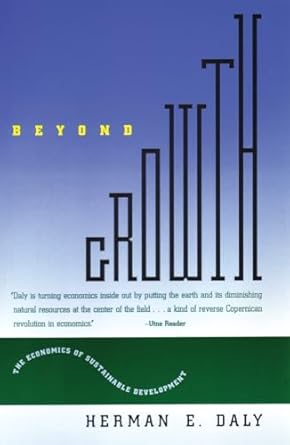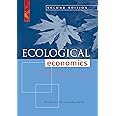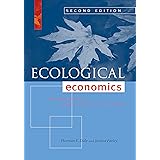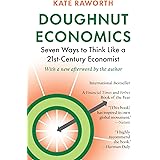
Enjoy fast, free delivery, exclusive deals, and award-winning movies & TV shows with Prime
Try Prime
and start saving today with fast, free delivery
Amazon Prime includes:
Fast, FREE Delivery is available to Prime members. To join, select "Try Amazon Prime and start saving today with Fast, FREE Delivery" below the Add to Cart button.
Amazon Prime members enjoy:- Cardmembers earn 5% Back at Amazon.com with a Prime Credit Card.
- Unlimited Free Two-Day Delivery
- Streaming of thousands of movies and TV shows with limited ads on Prime Video.
- A Kindle book to borrow for free each month - with no due dates
- Listen to over 2 million songs and hundreds of playlists
- Unlimited photo storage with anywhere access
Important: Your credit card will NOT be charged when you start your free trial or if you cancel during the trial period. If you're happy with Amazon Prime, do nothing. At the end of the free trial, your membership will automatically upgrade to a monthly membership.
Buy new:
-17% $20.66$20.66
Ships from: Amazon Sold by: GLOBALIXIR
Save with Used - Acceptable
$9.65$9.65
Ships from: Amazon Sold by: -OnTimeBooks-

Download the free Kindle app and start reading Kindle books instantly on your smartphone, tablet, or computer - no Kindle device required.
Read instantly on your browser with Kindle for Web.
Using your mobile phone camera - scan the code below and download the Kindle app.

OK
Beyond Growth: The Economics of Sustainable Development Paperback – August 14, 1997
Purchase options and add-ons
--Utne Reader
"Considered by most to be the dean of ecological economics, Herman E. Daly elegantly topples many shibboleths in Beyond Growth. Daly challenges the conventional notion that growth is always good, and he bucks environmentalist orthodoxy, arguing that the current focus on 'sustainable development' is misguided and that the phrase itself has become meaningless."
--Mother Jones
"In Beyond Growth, . . . [Daly] derides the concept of 'sustainable growth' as an oxymoron. . . . Calling Mr. Daly 'an unsung hero,' Robert Goodland, the World Bank's top environmental adviser, says, 'He has been a voice crying in the wilderness.'"
--G. Pascal Zachary, The Wall Street Journal
"A new book by that most far-seeing and heretical of economists, Herman Daly. For 25 years now, Daly has been thinking through a new economics that accounts for the wealth of nature, the value of community and the necessity for morality."
--Donella H. Meadows, Los Angeles Times
"For clarity of vision and ecological wisdom Herman Daly has no peer among contemporary economists. . . . Beyond Growth is essential reading."
--David W. Orr, Oberlin College
"There is no more basic ethical question than the one Herman Daly is asking."
--Hal Kahn, The San Jose Mercury News
"Daly's critiques of economic orthodoxy . . . deliver a powerful and much-needed jolt to conventional thinking." --Karen Pennar, Business Week
Named one of a hundred "visionaries who could change your life" by the Utne Reader,Herman Daly is the recipient of many awards, including a Grawemeyer Award, the Heineken Prize for environmental science, and the "Alternative Nobel Prize," the Right Livelihood Award. He is professor at the University of Maryland's School of Public Affairs, and coauthor with John Cobb, Jr., of For the Common Good.
- Print length264 pages
- LanguageEnglish
- PublisherBeacon Press
- Publication dateAugust 14, 1997
- Dimensions6 x 0.66 x 9 inches
- ISBN-109780807047095
- ISBN-13978-0807047095
The Amazon Book Review
Book recommendations, author interviews, editors' picks, and more. Read it now
Frequently bought together
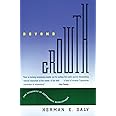
Customers who viewed this item also viewed
Editorial Reviews
Review
"Considered by most to be the dean of ecological economics, Herman E. Daly elegantly topples many shibboleths in Beyond Growth. Daly challenges the conventional notion that growth is always good, and he bucks environmentalist orthodoxy, arguing that the current focus on 'sustainable development' is misguided and that the phrase itself has become meaningless." --Mother Jones
"In Beyond Growth, . . . [Daly] derides the concept of 'sustainable growth' as an oxymoron. . . . Calling Mr. Daly 'an unsung hero,' Robert Goodland, the World Bank's top environmental adviser, says, 'He has been a voice crying in the wilderness.'" --G. Pascal Zachary, The Wall Street Journal
"A new book by that most far-seeing and heretical of economists, Herman Daly. For 25 years now, Daly has been thinking through a new economics that accounts for the wealth of nature, the value of community and the necessity for morality." --Donella H. Meadows, Los Angeles Times
"For clarity of vision and ecological wisdom Herman Daly has no peer among contemporary economists. . . . Beyond Growth is essential reading." --David W. Orr, Oberlin College
"There is no more basic ethical question than the one Herman Daly is asking." --Hal Kahn, The San Jose Mercury News
"Daly's critiques of economic orthodoxy . . . deliver a powerful and much-needed jolt to conventional thinking." --Karen Pennar, Business Week
From the Back Cover
About the Author
Product details
- ASIN : 0807047090
- Publisher : Beacon Press; New edition (August 14, 1997)
- Language : English
- Paperback : 264 pages
- ISBN-10 : 9780807047095
- ISBN-13 : 978-0807047095
- Item Weight : 12.8 ounces
- Dimensions : 6 x 0.66 x 9 inches
- Best Sellers Rank: #1,021,108 in Books (See Top 100 in Books)
- #380 in Sustainable Business Development
- #617 in Development & Growth Economics (Books)
- #1,511 in Environmental Economics (Books)
- Customer Reviews:
About the author

Discover more of the author’s books, see similar authors, read author blogs and more
Customer reviews
Customer Reviews, including Product Star Ratings help customers to learn more about the product and decide whether it is the right product for them.
To calculate the overall star rating and percentage breakdown by star, we don’t use a simple average. Instead, our system considers things like how recent a review is and if the reviewer bought the item on Amazon. It also analyzed reviews to verify trustworthiness.
Learn more how customers reviews work on Amazon-
Top reviews
Top reviews from the United States
There was a problem filtering reviews right now. Please try again later.
I read this book in a grad school course, having an undergraduate degree in biology, much practical activism, and some minor graduate background in some economics. I needed to outline some chapters to really grasp his discussion and terms. As Jared Diamond mentions in his book Collapse, the removal of any tree, fish, or living thing inherently disrupts ecosystems. While I have found organic foods and green products to be fundamental to creating a sounder activist lifestyle, and perhaps there is some part of me that bridles at the role of economics in subjugating ecosystems. Of course, Daly is a valiant intellect in service of aligning nature and human economics, and I am glad to find it is essential and rewarding to grasp his terms and reasoning.
His chapter 1 on moving to a steady state economy provides two fundamental ideas, biophysical and ethicosocial limits, along with the contemporary psychosocial condition of money, indicators, and information technology. His Chapter 11 I found especially helpful in focussing on the other basic concepts of allocation, distribution, and optimal scale.
A funny characteristic of Daly's thought strikes me as strangely comparable to conventional economists, in that it is overwhelmingly philosophical in character. While he also overwhelmingly appears to be applying a very tangible awareness of the biophysical and ethicosocial limits to his thoughts about allocation, distribution, and scale and the like, he does not cite constructive and existing examples.
As he refers at the end of his biophysical topic, conventional economists are like high priests. I think he implicitly perceives another issue that I don't think he explicitly addresses, that of economic power. William Dugger and a few other hearty economists have braved the subject, although it is C.W. Mills who had forged through some wilderness with his work, The Power Elite. Therefore, Daly may want to remain in the highly theoretical realm to avoid imaginable tragedies of other sorts.
Nevertheless, he does refer to Greenpeace in the introduction in an offhand reference, which touches on this important invisible, and essential, dimension. While Daly's discussion explores brilliantly various essential conceptual realms, I think three additional ones that help me grasp and stick with his enormous accomplishment are the views of Ralph Nader, Anita Roddick, and James Warbasse. I use Ralph Nader to reflect the role of non-profit activists like Greenpeace, Friends of the Earth, and Sierra Club. Anita Roddick represents social entrepreneurs like Pax World Fund, Tom's of Maine, and Patagonia's founder. James Warbasse advocated for the cooperative movement, represented in part by Welch's, Ocean Spray, and Land O'Lakes, but more strongly by Organic Valley, Equal Exchange, and Once Again Nut Butters.
With these types of dynamics in mind, an invisible wall in Daly's thought becomes clear. His focus has continued to be the established system and the fundamental dynamics underlying its tragic growth. Ultimately, however, the hope for manifesting his insights lies outside the realm of his overall focus. The wisdom economy he refers to briefly exists in many places already. Daly's discussions are a fine basis to encourage and motivate those who already participate in the alternative, green economy.
Moreover, I have found at least two points which reflect something about the limitations of Daly's own assumptions and focus, trivial as they ultimately appear to be. His review of the situation in Northeast Brazil tragically fails to acknowledge the indigenous populations. He makes an egregiously wrong statement "there is no ethnic difference between the poor and the rich." Personally, I happen to have close family in that very area, and immediately perceived the mistake. Further research clarified the situation for me. A tragic case of cultural eradication took place there, which may have spared some lives but meant total cultural subjugation.
Secondly, he states at one point that he would let labor and capital duke it out as if on equal terms when he concludes an argument of biophysical limits. I thought that an unrealistic equation, and a moment of loss of clarity as he circled in the intellectual stratosphere. Unfortunately, for all the corporate executive and cultural prejudice against laborers, it is the anti-employee actions of cold-blooded, profit-blood thirsty executives that has overwhelmingly debased labor's conditions and underlain most of their grievances.
On a number of occasions he seems to indulge in conventional market assumptions before mostly discerning fundamental issues. The issue of labor ultimately has been given extensive treatment in literature on employee-owned firms, beginning with Jaroslav Vanek and others in journals like Journal of Economic Issues. David Ellerman has made an important argument recently, and well-described in William Greider's The Soul of Capitalism and Mark Lutz's Economics for the Common Good. Daly is also treated in both those excellent works. Greider's addresses many practical dimensions and cases and would make excellent accompaniment to Daly's work. Michael Conroy's work, Branded!, also. He treats the non-profit certification movement with some inspiring detail.
Ultimately, my research has been leading me to the conclusion that the empirical basis of modern economics is not their inexplicable powers of fantastic logic. It is the missing dimension captured in Daly's quote of high priests, Mills' work on The Power Elite, and Dugger's work on Corporate Hegemony. Predatory, profit-maximizing corporations have stacked the system, including legal decisions over the last 200 years in an anti-democratic counter-revolution even before Reagan. They created a limited liability culture that has created an advertising and consumer culture each in turn. Thom Hartmann, Joel Bakan, Charles Derber, and Marjorie Kelly are among some of the excellent researchers on those topics, along with Greider, Dugger, and Mills. Therefore, the strongest logical step for these brave ecological economists like Daly, and any of us there supporters, is to link the actions mentioned by Diamond, formerly of the WWF, about the need for citizen action and the successes of the WWF and Rainforest Action Network. Keeping Nader, Greenpeace, Roddick, Warbasse, and Conroy in mind, and the many civil society groups, Daly's work can find the empirical base it needs to help transform academia and green industrial society.
Something that impressed me was how Daly in 1997 used his intellectual model to forecast the concentration of asset ownership in the U.S., with the consequence of increasing class disparity and declining real wages for the middle class. That would have seemed like outlandish poppycock in the mid-90s, but now in 2007, lo and behold, it's coming to pass (per the CIA and the Economic Policy Institute, and BLS.gov statistics) for all the reasons Daly outlined 10 years ago. The man is onto something, and policymakers would do well to listen to him.
Even better, I think, is that reading between the lines of Daly's book there is a real and believable message of hope. The world of the future that acknowledges limits, and embraces development over growth (think "quality" not "quantity" of the economy as the goal) is a better place than the world we live in today. Instead of the world becoming a planetary Los Angeles or Hong Kong, where life is crowded, expensive, polluted and mean, what I took away from Daly's book was a clear intellectual architecture for a world that is beautiful, full of possibilities for interesting life work, and full of hope and things to look forward to. I sincerely hope that Daly's vision helps shape the world my daughter grows up in.
Herman Daly makes the obvious point that finite resources will not last forever and will spell doom, sooner than expected, for GDP-addled policies and economies that strive always to solve their problems with more. More drilling, more burning, more mining, more waste, more polluting, more shipping, more exporting, more importing, more selling, more consuming, more discarding, more, more, more, more. He also realized early on that globalization as practiced in the 20th and 21st centuries is economic suicide for the US and other advanced economies and the people who live and work within them. He brings the context of David Ricardo's famous theory of Comparative Advantage into focus to explain why it is almost completely misused, misapplied and irrelevant these days.
Prof. Daly points us in the direction of human preservation, of how to solve economic problems without destroying our natural inheritance and ourselves. He points to a future in which human beings are not self-extinguishing.
This book speaks of sustainability. This book speaks of useful prosperity. This book speaks of ethics. This is one strange book on economics. This is one very useful book on economics.
Top reviews from other countries
Daly follows his argument with excellent case studies that illustrate how national policy can help us move toward this new paradigm.
I am not an economist and some of this book was challenging for me, but it put into words many ideas that had been floating around my mind unfocused for so long because I just couldn't articulate them as Daly did.
I am really glad I read this book. So will anyone with an interest in a sustainable economic future.

